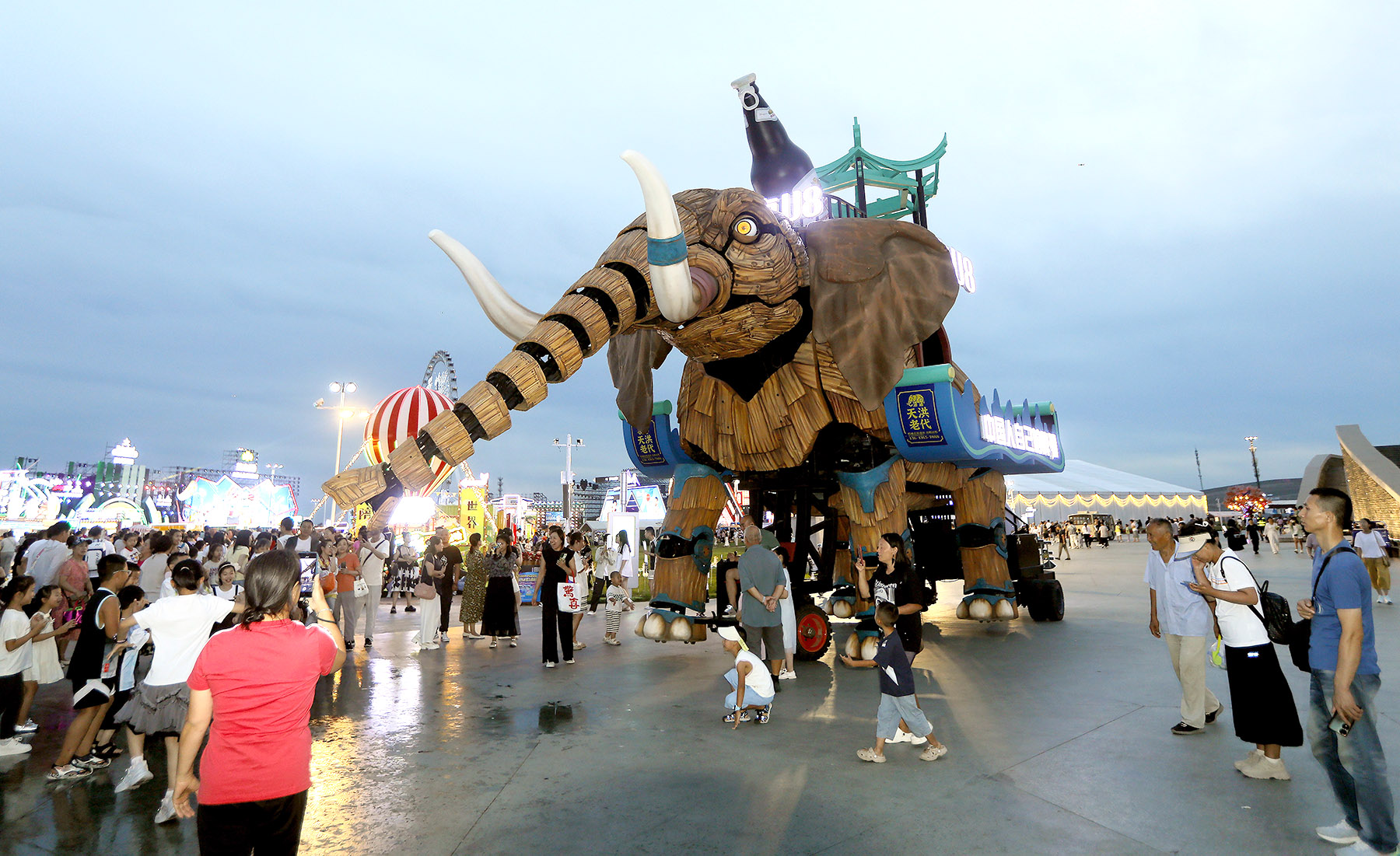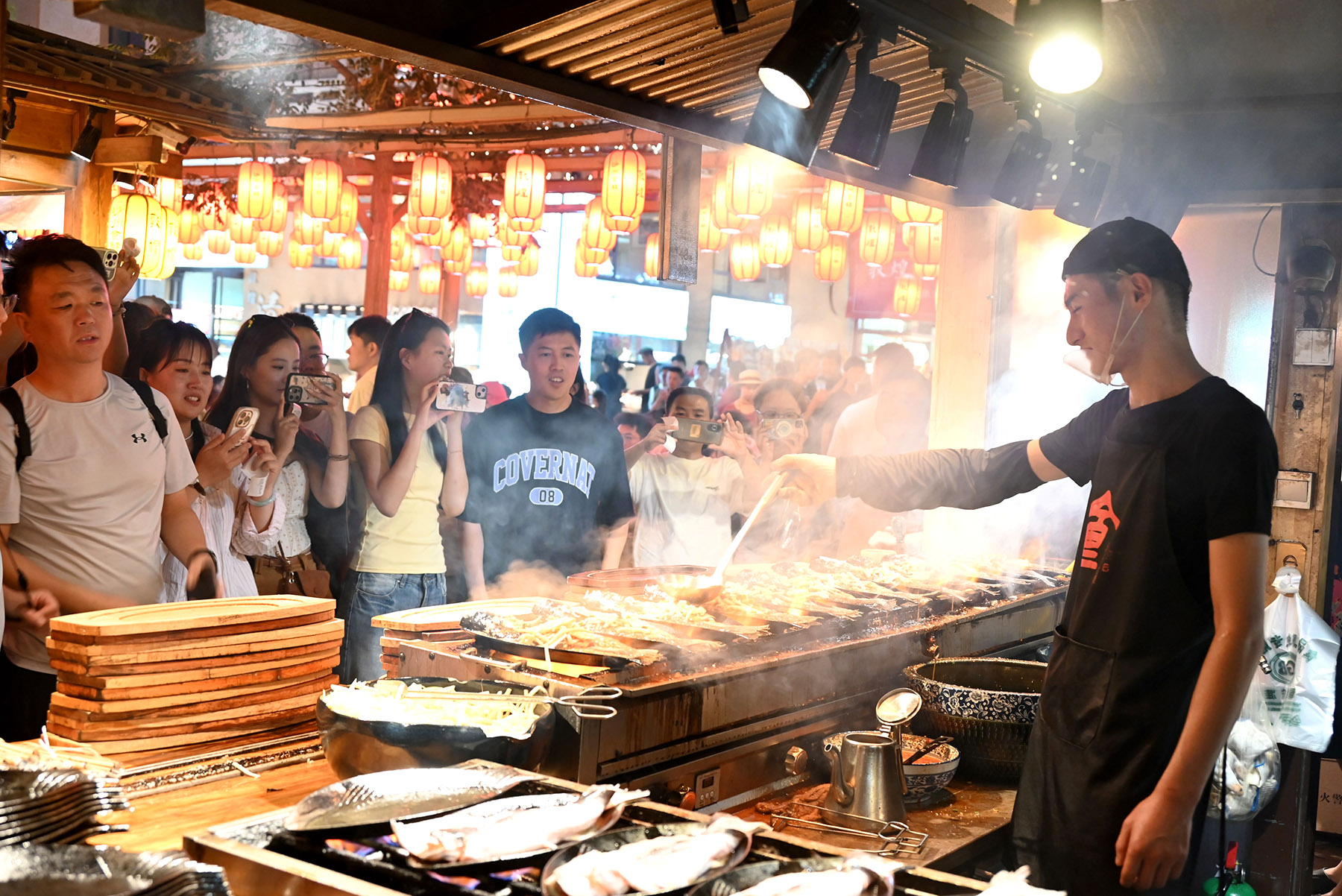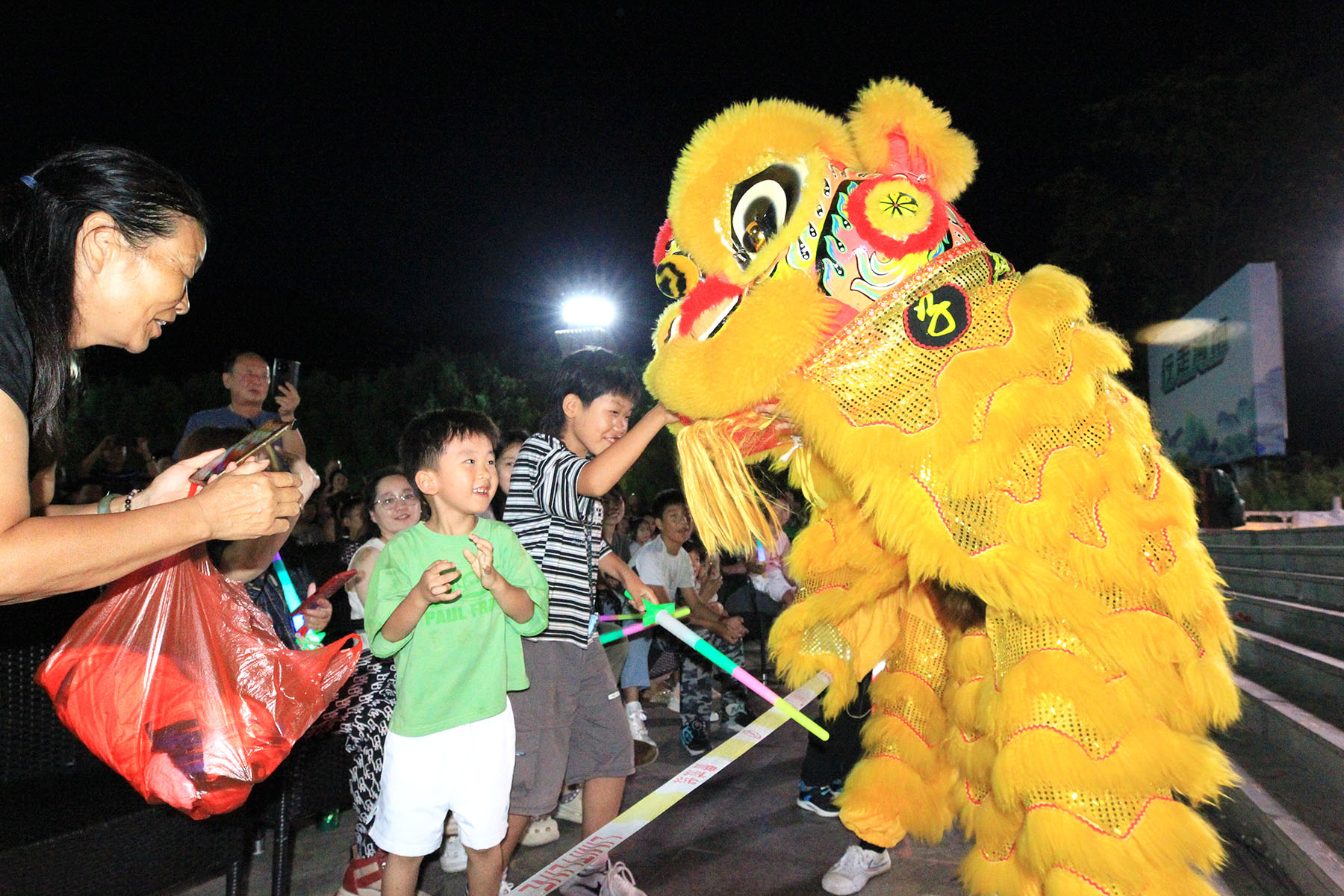Expansion of after-dusk activities promoting diversification of consumption formats, encouraging discretionary spending, and sustaining growth momentum in nation

Nighttime dining, shopping and travel are thriving across China this summer, injecting fresh momentum to economic growth at a time when the country has prioritized consumption as its top priority this year.
The market size of China's nighttime economy has so far surpassed 50 trillion yuan ($7 trillion), said marketing consultancy Zhiyanzhan.
More restaurants have extended business hours and launched delivery services to attract late-night diners and increase revenue.
Huda Restaurant, a popular crayfish eatery in Beijing's bustling Guijie Street, is operating four outlets in the same area, cumulatively serving more than 6,500 customers daily on average. During peak hours on some nights, customers sometimes have to wait in line for three hours, according to the restaurant.
"Tourists are often unable to wait that long to dine in. Some choose the takeaway option, or order deliveries to their hotels. Some 70 percent of our takeout orders come from nearby hotels, as many tourists tend to order deliveries at night after their daytime sightseeing in the city," said Zhang Shengtao, deputy general manager of Huda.
READ MORE: With 'smoke, fire and steam', night markets erupt into life
"We take food delivery platforms as an important supplement to our operations, as the platforms allow customers to search for our restaurant from different channels. With no increase in the number of staff members and no change in restaurant areas, delivery services can help raise order volumes and lead to profit growth," Zhang said.
The restaurant chain said diners aged between 25 and 39 account for a large share of its total customers, while consumers opting for deliveries are mainly aged between 18 and 35.

Hong Yong, an associate research fellow at the Chinese Academy of International Trade and Economic Cooperation, said the availability of nighttime dining meets the demand for late night snacking among urban white-collar employees and many young consumers, especially as more people stay up late, work overtime, or venture out for social entertainment, and late night dining gradually becomes a part of their daily routine.
"Nighttime economic activities such as dining, night tours and shopping provide richer consumption scenarios, and meet consumers' demand for leisure and entertainment, social interaction and emotional release," Hong said.
"The expansion of nighttime consumption scenarios will help promote the diversification of consumption formats, encourage higher frequencies of spending, effectively stimulate domestic demand and promote sustained economic growth momentum," he added.
According to a report released by the Ministry of Commerce, 60 percent of China's urban consumption takes place after dusk. At large-scale malls, sales between 6 pm and 10 pm usually account for over half of the whole day's revenue.
A-Shui Tea Shop, a tea drink brand based in Jinan, Shandong province, now operates some 1,400 stores nationwide, which are mainly located in Shandong, Jiangsu and Hebei provinces, as well as Tianjin and Beijing.
Since June, some of its stores began to extend their business hours. Now, over 300 stores operate until 11 pm, more than 100 stores operate until midnight, and a further 100 outlets are open beyond midnight. The extension of business hours will last until the end of September, the company said.
"After extending the business hours, there has been a clear trend of growth in store revenue, and some stores have experienced sales growth of over 100 percent compared with the period before the extension," said Wei Qun, director of delivery services at A-Shui Tea Shop.
"Nighttime sales have been especially high in Jinan and Qingdao of Shandong, as well as Tianjin. Stores with higher revenues are mainly located in core business circles, and nighttime sales mainly come from orders for deliveries," Wei said.
He added that in summer, many consumers are interested in having barbecues and crayfish at night, and restaurants providing such meals located in core business districts have largely extended their operating hours. Their popularity has also driven the sales growth of beverages, as certain drinks pair nicely with these kinds of food.
In addition to the catering sector, many sightseeing spots have extended their opening hours this summer, and upgraded night tourism products to meet the diverse demand of travelers. Besides driving an increase in ticket revenue for scenic spots, it has promoted the growth of related businesses such as catering, accommodation and shopping in surrounding areas.

The government has encouraged more industry players to actively develop the night tourism economy.
According to a guideline issued earlier this year by the State Council, China's Cabinet, the holding of more nighttime activities such as folk performances, lantern fairs, temple fairs, and light and shadow shows has been encouraged, and different regions could develop water night tours based on local conditions.
In addition, the government will support the upgrading and renovation of lighting services at night in commercial areas, and the optimization of support facilities such as parking lots and public transportation, according to the document.
In Guiyang, Southwest China's Guizhou province, a three-day international kite festival that included nighttime events attracted more than 163,000 tourists in July, netting tourism revenue of over 60 million yuan, according to the local government.
Night markets, roadside concerts in parks, trunk markets and other nighttime consumption scenes were attractive to tourists.
"This type of nighttime cultural tourism model, with feature activities as its core, gathers popularity and forms a consumption loop, and has become an effective way to boost the nighttime economy," said Mu Qianyi, an analyst of LeadLeo Research Institute, a market research provider based in Shanghai.
ALSO READ: Chinese policymakers urged to ramp up efforts to boost consumption
Mu added that new technologies and scenarios such as drone light shows at night will help enrich the experiences of tourists. The improvement in the quality of scenes naturally enhances the attractiveness and vitality of nighttime cultural tourism, and could help inject new impetus into economic growth.
Particularly, Shanghai has been developing a booming nighttime economy, and the city's after-dark economy index has maintained the top position in the country for five consecutive years. This year, it has been followed by Guangzhou, Guangdong province, and Chengdu, Sichuan province, said Rising Lab, a city-oriented big data platform of Yicai Media Group.
In Shanghai, nighttime lighting covered 75 percent of the city's area last year, and nighttime public transportation covered 1,975 square kilometers, which significantly helped to improve the local nighttime consumption environment, the platform found.
Contact the writer at zhuwenqian@chinadaily.com.cn


